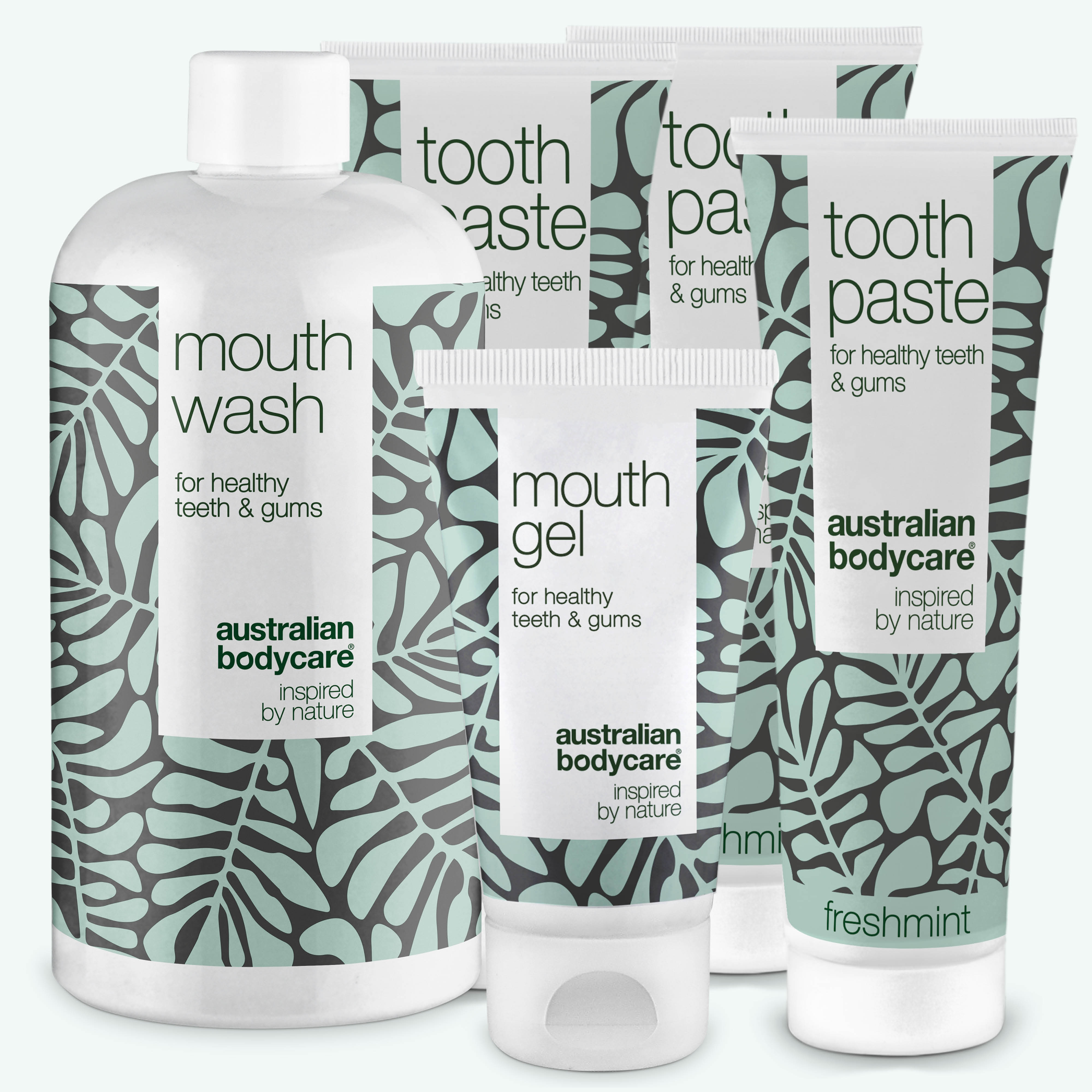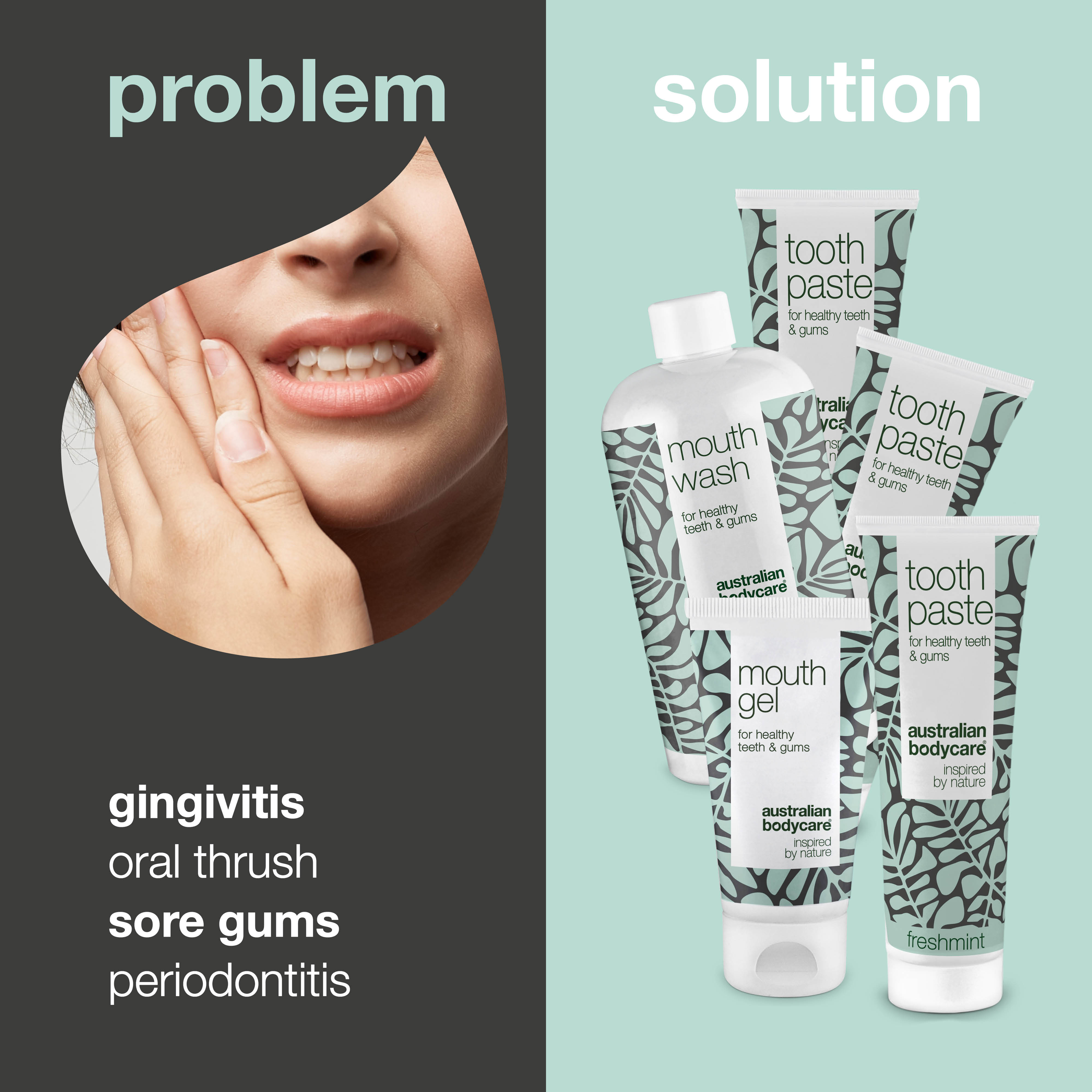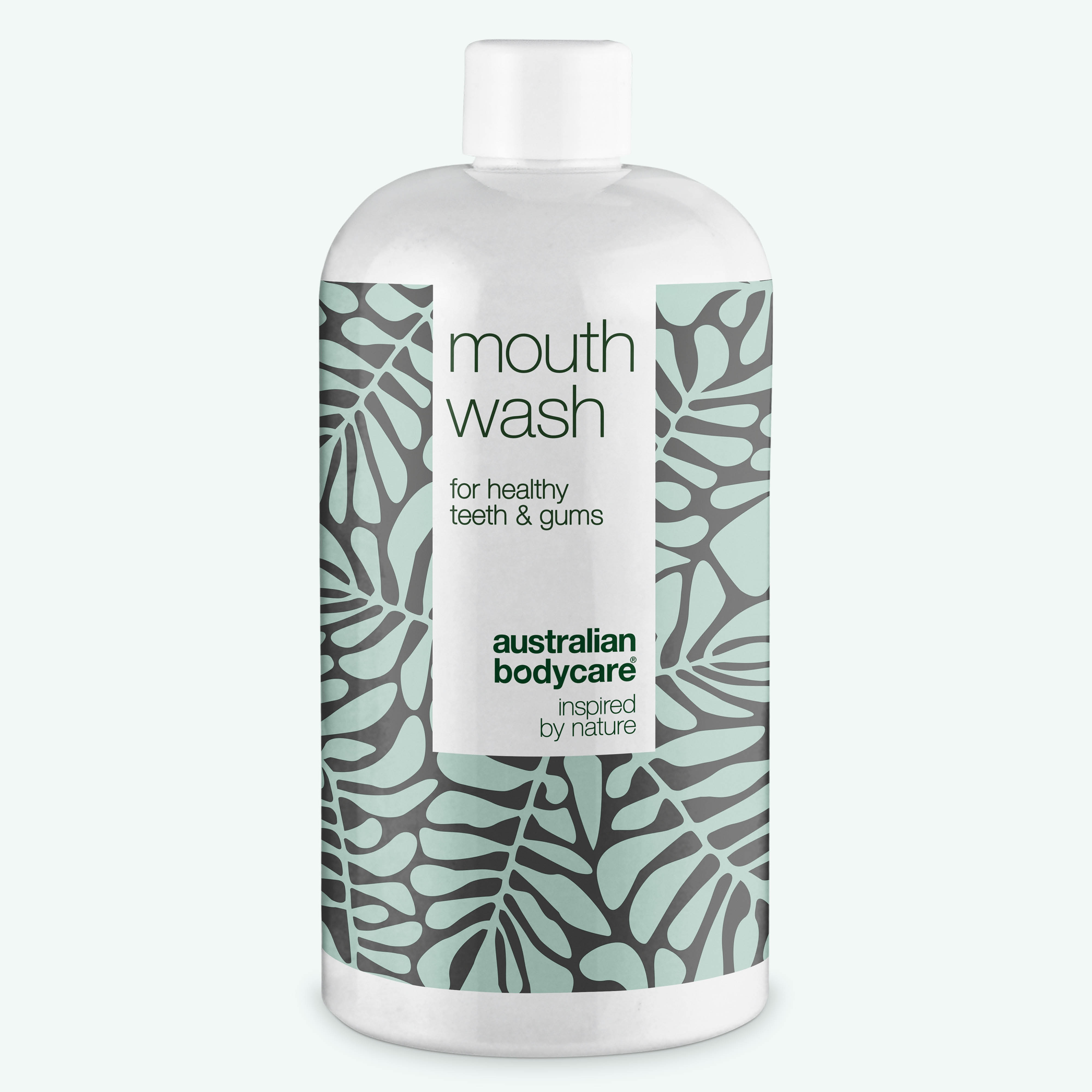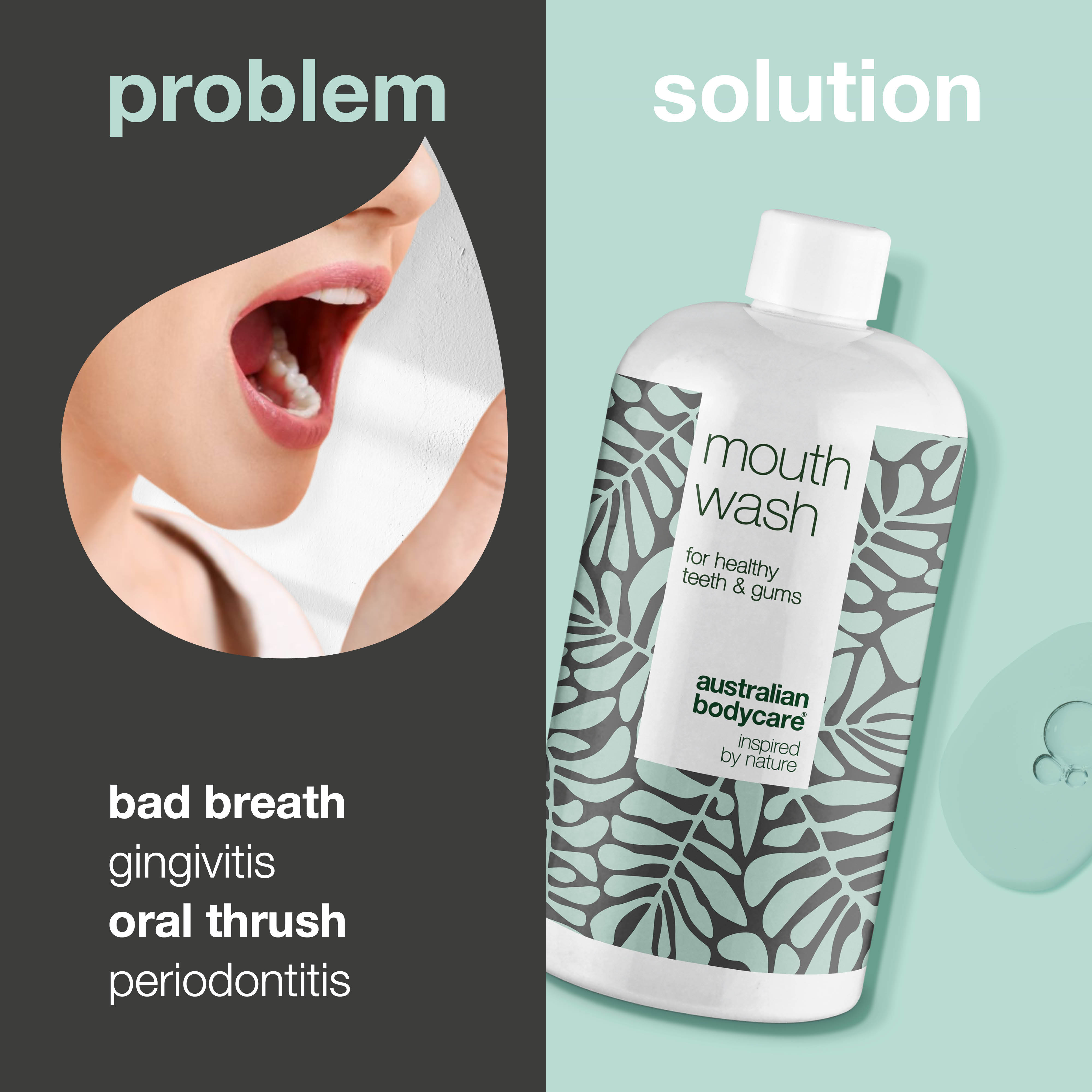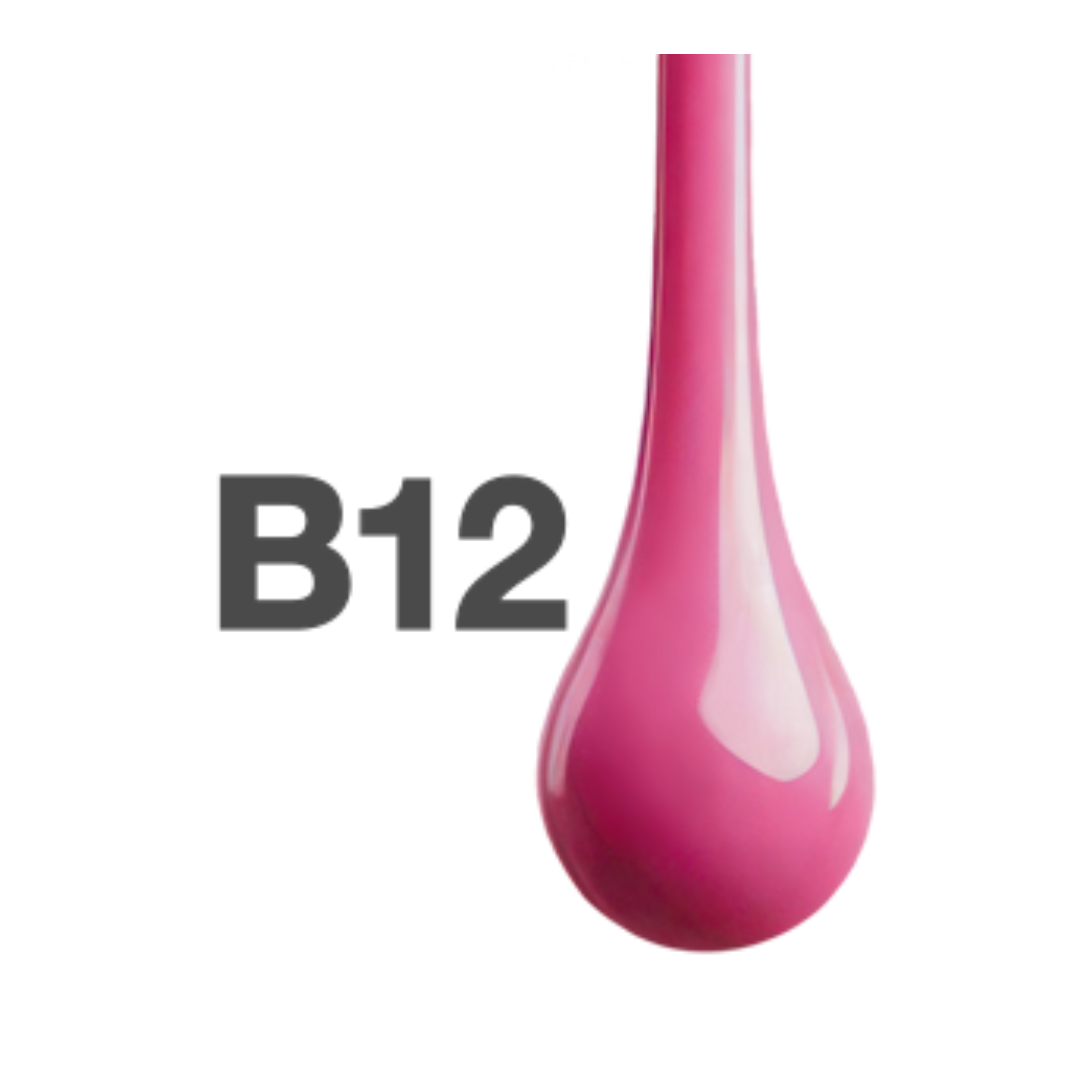Periodontitis: Learn more about treatment and prevention
Periodontal disease is not unusual, but you will probably prefer not to get acquainted with it all the same. We will tell you more below about what periodontitis or periodontal disease is, and how our toothpaste and mouthwash with Tea Tree Oil can help.
Table of contents
What is periodontal disease?
You may have heard of periodontitis, which professionals also refer to as periodontal disease. Both terms refer to the same condition in the mouth, which develops in connection with gingivitis.
If you have had gingivitis for a long time without getting help and having it treated, it can unfortunately develop into periodontitis. When bacteria are allowed to remain undisturbed on your gums, they tend to spread. If they spread to the underlying tissue around the root of the tooth, the condition is called periodontitis.
Inflammation may cause the bone tissue to break down, with a risk that your teeth will become loose. In the worst case, teeth may fall out, as the attachment will be too severely damaged.
This is what we will look at in the following sections:
- What are the symptoms of periodontal disease?
- How does periodontal disease develop?
- Who gets periodontal disease?
- How is periodontal disease treated?
We will also look at how our toothpaste and mouthwash with Tea Tree Oil can be your faithful friends in future, in your morning and evening oral hygiene routine. There are in fact lots of things you can do yourself to prevent periodontitis.
And of course, there are symptoms that you can watch out for.
What are the symptoms of periodontal disease?
If gingivitis is treated, you can avoid periodontal disease. We will describe the symptoms of gingivitis first, and go on to periodontal disease.
The early beginnings of gingivitis
There are good reasons for being observant, if your gums change colour or suddenly become tender and swollen. Bleeding gums may be a sign of gingivitis, and you need to take notice.
Your gums may bleed when you brush your teeth. If you have started using dental floss, your gums may bleed the first few times. That is quite normal. However, it should only be for a short time. You should observe whether the gum bleeds every time you use dental floss. That may be a sign of gingivitis, and if it is not treated, it can progress to periodontal disease.
It may be periodontal disease
If you have overlooked the above symptoms, they may lead to periodontal disease. You may discover that your gums are swollen, and you have bad breath. If you have periodontal disease, you may often have an unpleasant taste in your mouth and teeth that are loose.
When there is periodontal disease, small pockets develop between the teeth and the gums, and they may be painful. If you have any of these symptoms, it is very important that you see a dentist immediately. If they are not treated, your teeth may fall out.
In fact it is quite possible, unfortunately, to have periodontal disease without being aware of it. You should therefore visit your dentist, so that you can discover the condition before it gets critical.
How does periodontal disease develop?
Bacteria occur naturally in our mouths. They settle on the teeth, and are then called plaque. If they are not removed, they will spread to the gums, where they can cause gingivitis that progresses to periodontal disease.
The bacteria actually cause the gingival pockets to deepen. There is then a space where plaque and scale can settle and build up. The inflammation spreads, and gradually begins to break down the bone.
The primary reason for gingivitis is poor oral hygiene.
Who gets periodontal disease?
Periodontal disease is not reserved for just a few. In fact gingivitis and periodontitis are widespread in most populations. Nine out of ten will have gingivitis at some time, and four to five out of ten will have periodontitis.
So it is definitely not unlikely that you will get periodontitis too. Clearly, that does not mean that you can simply sit back and wait for it to happen. There is a lot you can do to prevent gingivitis, and thereby periodontitis as well.
Of course, you can also get help if you do get periodontitis. Read on here.
How is periodontal disease treated?
With regard to periodontal disease, prevention is better than a cure. And luckily, there is plenty you can do yourself to prevent it.
What can you do yourself to prevent or stop periodontal disease developing?
A healthy mouth and good oral hygiene are alpha and omega in preventing gingivitis and periodontal disease. We therefore recommend three simple things it is wise to do morning and evening.
Brush your teeth
It is important to ensure that conditions in your mouth do not encourage plaque. You should therefore brush your teeth twice a day. Use our toothpaste with tea tree oil, which is specially developed to prevent periodontal disease. Note that you should brush carefully, with circular movements. If you brush too hard, you can damage the enamel on the teeth and your gums.
Remember to floss
Dentists always tell us, but most of us forget it. But do remember to use dental floss. Dental floss can get in where a toothbrush has to give up. Flossing ensures that the last remnants of food are removed, and your teeth are less attractive to bacteria.
Finish off with mouthwash
Complete your routine with our mouthwash with Tea Tree Oil, which is obtained from an Australian tree, Melaleuca alternifolia. Tea tree leaves are anti-inflammatory, and have been used for many years to treat infected wounds.
Now the oil has been extracted, and it is possible to supply toothpaste and mouthwash which help to keep your mouth healthy. With a mouthwash you can start the day with extra fresh breath, too.
Medical treatment
It is always wise to visit your dentist if you suspect you have gingivitis or periodontal disease. In fact you should go for regular check-ups to be certain that nothing is hidden under the surface.
If you have periodontal disease, you need the help of a dentist. It may be necessary to operate on the gums to remove plaque and scale that has built up deep in the pockets. In some cases treatment with antibiotics may be necessary, but this is extremely rare.
Talk to your dentist and make a plan for your treatment in the future. And brush your teeth morning and evening with our Tea Tree Oil toothpaste.


